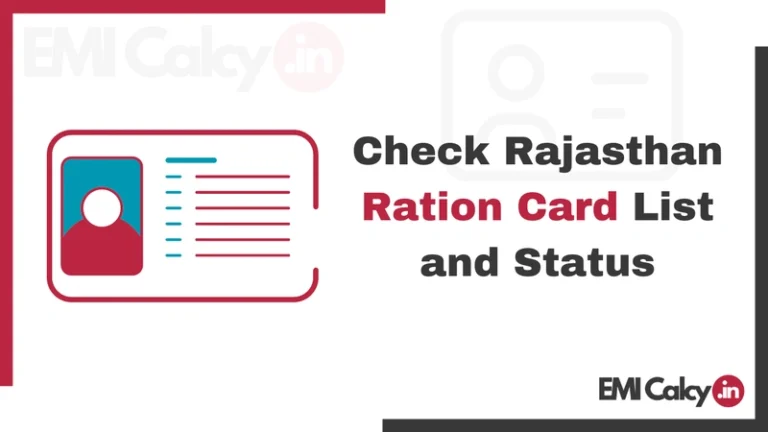Investing money wisely is a crucial aspect of financial planning, especially in a country like India, where the financial landscape is dynamic and diverse.
Smart investing is not just about maximizing returns; it’s about making informed decisions that align with your financial goals, risk tolerance, and time horizon
In the fast-paced world of finance, the term “Smart Investment” is thrown around quite a bit. But what does it really mean, and how can Indians make informed choices to secure their financial future?
In this article, we’ll learn the key components of smart investment, demystify the concept of smart investments, and provide Money Management Tips for Personal Financial Success
Understanding Smart Investments
At its core, a smart investment is one that not only preserves your hard-earned money but also has the potential to grow over time.
It’s about making strategic choices that align with your financial goals, risk tolerance, and the current economic landscape.
To embark on this journey, let’s explore the key components of a smart investment.
Related: Bank Loan EMI Calculator Online
1. Clear Financial Goals
The foundation of any smart investment strategy lies in defining your financial goals. Are you saving for your child’s education, planning for retirement, or looking to build wealth over time?
Clearly outlining your objectives will help shape your investment approach and determine the level of risk you can afford to take.
2. Risk Assessment
Every investment involves a certain degree of risk. Understanding your risk tolerance is crucial.
While some individuals are comfortable with the volatility of the stock market, others may prefer more stable options, like bonds or fixed deposits.
Assessing your risk tolerance ensures that your investment choices align with your comfort level, preventing sleepless nights during market fluctuations.
3. Diversification
The age-old saying, “Don’t put all your eggs in one basket,” holds true in the world of investing.
Diversification involves spreading your investments across different asset classes, industries, and geographical regions.
This helps mitigate risks, as the poor performance of one investment is balanced by the positive performance of others.
4. Time Horizon
Your time horizon is the duration for which you plan to invest before needing the funds.
If you’re investing for short-term goals, such as buying a house in the next two years, your strategy will differ from someone saving for retirement 30 years down the line.
Understanding your time horizon allows you to select investments that match your timeline.
Related: Tips for Managing Your EMI Payments Effectively
5. Stay Informed
Smart investors are well-informed investors. Keep yourself updated on market trends, economic indicators, and global events that could impact your investments.
While you don’t need to be a financial expert, a basic understanding of the factors influencing the market can help you make more informed decisions.
Smart Investing Tips:
Now that we’ve laid the groundwork for understanding smart investments, let’s delve into some practical tips tailored for the Indian investor.
Explore Mutual Funds
Mutual funds offer a great entry point for novice investors. They pool money from multiple investors to invest in a diversified portfolio of stocks, bonds, or other securities.
With a variety of options catering to different risk appetites, mutual funds provide flexibility and professional management.
Consider consulting with a financial advisor to identify funds aligned with your goals.
Real Estate Opportunities
Real estate has been a cornerstone of wealth creation in India. Whether it’s residential or commercial property, real estate investments have the potential for long-term appreciation.
However, it’s essential to conduct thorough research, considering factors like location, developer reputation, and market trends, before diving in.
SIPs for Disciplined Investing
Systematic Investment Plans (SIPs) are an excellent way to instill financial discipline. By investing a fixed amount regularly, typically monthly, you benefit from rupee-cost averaging.
This strategy ensures that you buy more units when prices are low and fewer units when prices are high, ultimately reducing the impact of market volatility on your overall investment.
Gold as a Hedge
Indians have a historical affinity for gold, often considering it a safe haven investment.
While traditional gold jewelry and coins remain popular, you can also explore investment options like gold Exchange-Traded Funds (ETFs) or sovereign gold bonds.
Gold serves as a hedge against inflation and currency fluctuations, adding stability to your portfolio.
Tax-Efficient Investments
Tax planning is a crucial aspect of smart investing. Explore tax-efficient investment options like Equity Linked Savings Schemes (ELSS), the Public Provident Fund (PPF), or the National Pension System (NPS) to optimize your returns while enjoying tax benefits.
Understanding the tax implications of your investments can significantly enhance your overall returns.
Related: How to Save Money from Salary Like a Pro
Stay Disciplined During Market Fluctuations
Market volatility is inevitable, and emotional decision-making can lead to poor investment choices.
Stay disciplined and avoid making impulsive decisions based on short-term market movements. Keep your long-term goals in mind, and if necessary, consult with a financial advisor to reassess your strategy during turbulent times.
Regularly Review and Rebalance
Smart investing is an ongoing process. Regularly review your investment portfolio to ensure it remains aligned with your goals and risk tolerance.
Rebalance your portfolio if necessary, adjusting the asset allocation based on market conditions and changes in your financial situation.
Take Advantage of Employer Benefits
If your employer offers benefits such as the Provident Fund (PF) or the Employee Provident Fund (EPF), take full advantage of these opportunities.
Employer-sponsored investment options often come with tax benefits and can significantly contribute to your long-term financial growth.
Educate Yourself
Finally, never stop learning. The world of finance is dynamic, and staying informed is key to making smart investment decisions.
Attend workshops, read books, follow financial news, and consider seeking advice from experts to enhance your financial literacy.
Related: How to Reduce EMI of Existing Personal Loans
Conclusion
Smart investing is a journey, not a destination. By understanding your financial goals, assessing risk, diversifying your portfolio, and staying informed, you can navigate the complex world of investments with confidence.
Whether you’re a seasoned investor or just starting, these tips tailored for Indian investors can serve as a roadmap to help you make informed decisions and build a secure financial future.
Remember, the key to smart investing lies in patience, discipline, and a commitment to your long-term goals.
FAQs about Smart Investments:
What is a smart investment, and why is it important for Indians?
A smart investment is a strategic financial decision that aims to preserve and grow one’s money over time. It’s crucial for Indians as it helps them achieve financial goals, beat inflation, and secure a stable future.
How can I determine my risk tolerance for investments?
Assessing your risk tolerance involves understanding how comfortable you are with the potential ups and downs of the market. Consider factors like your financial goals, time horizon, and emotional resilience to make an informed judgment.
Why is diversification important in smart investing?
Diversification involves spreading investments across different assets to reduce risk. It’s crucial because if one investment underperforms, others may compensate, providing a more stable overall portfolio and potentially higher returns.







